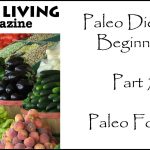Coconut milk is a popular plant-based milk alternative made from the pulp of ripe coconuts. Besides its popularity as a vegan milk alternative, it’s also good for those who want to avoid dairy or lactose, too.
One of the main questions that many people have about coconut milk is whether or not it is considered to be dairy. The answer to this question is not straightforward, as it depends on how the term “dairy” is defined (either by people or by food labeling regulations) and whether or not coconut milk meets that definition.
For example, according to the U.S. Food and Drug Administration (FDA), the term “dairy” refers to products made from the milk of cows, goats, sheep, and other mammals.
This means that, by this particular definition, coconut milk is not considered to be dairy, as it is made from the pulp of coconuts and does not contain any milk from mammals.
However, some people may define the term “dairy” more broadly to include any type of milk or milk-like substance, regardless of its source.
Under this definition, coconut milk could be considered to be dairy, as it is a liquid that is similar in consistency and appearance to milk from mammals. It’s also used as a milk substitute or alternative to dairy, so some people just call it ‘dairy’, even when it isn’t.
If you’re just avoiding dairy, then coconut milk is likely to be OK. However, it’s also important to note that some brands of coconut milk may be fortified with calcium and other nutrients that are typically found in dairy or mammal milk.
This can make coconut milk a good source of these nutrients for individuals who do not consume dairy products but might also trigger food allergies if any of these additives are the reason you avoid dairy in the first place.
Can You Have Coconut Milk if You’re Allergic to Dairy?
Coconut milk is generally considered to be safe for individuals who are allergic to dairy. This is because it is made from coconut meat/pulp, and not milk from cows, goats etc.
Dairy allergies are caused by an immune reaction to proteins found in the milk of mammals. These proteins, such as casein and whey, are not present in coconut milk. This means that individuals with a dairy allergy are not at risk of experiencing an allergic reaction from the consumption of coconut milk.
In addition to this, coconut milk is often used as a dairy-free milk alternative in plant-based and vegan recipes, as it provides a creamy and rich texture without containing any animal-based ingredients.
This makes it a suitable and popular option for individuals with a dairy allergy who are looking for a plant-based milk alternative. It’s particularly popular in desserts as a dairy-free alternative, too.
However, it is important to keep in mind that some brands of coconut milk may be fortified with calcium and other nutrients that are typically found in dairy milk. These brands may also contain other ingredients, such as stabilizers and thickeners, that could potentially cause an allergic reaction in some individuals.
If it’s not just dairy you’re allergic to, but the things that are usually found with it, it’s best to double-check the label.
Does Coconut Milk Contain Lactose? [Is it OK if You’re Lactose Intolerant?]
Coconut milk does not usually contain lactose, which is a sugar found in regular milk from mammals. Because it is made from the pulp of coconuts and does not contain any milk from mammals, it does not typically contain lactose.
Lactose intolerance is a digestive disorder that occurs when an individual lacks the enzyme lactase, which is needed to digest lactose. This can cause symptoms such as bloating, gas, and diarrhea when lactose is consumed.
Because coconut milk does not contain lactose, it is generally considered to be a safe option for individuals with lactose intolerance. Intake of coconut milk will not trigger the symptoms of lactose intolerance, as there is no lactose present in the coconut milk for the body to digest.
However, as with dairy allergies, it is important to keep in mind that some brands of coconut milk may be fortified with calcium and other nutrients that are typically found in dairy milk.
These brands may also contain other ingredients, such as stabilizers and thickeners, that could potentially cause digestive issues in some individuals with lactose intolerance.
Therefore, if you are lactose intolerant and want to consume coconut milk, it is important to check the label carefully and choose a brand that is specifically labeled as “lactose-free” and does not contain any potential allergens. This will help to ensure that the coconut milk won’t cause any unwanted side effects.

Is Canned Coconut Milk Dairy Free Too?
In terms of its nutritional content and potential allergens, the canned types of coconut milk are similar to the fresh or carton-packaged types. You can treat it the same way for safety purposes if you’re avoiding dairy.
The canned version is also made from the pulp of coconuts and does not contain any milk from mammals, which means that it does not contain lactose or other potential allergens that are commonly found in dairy milk.
However, many canned coconut milk products contain ingredients beyond just fresh coconut milk to extend their shelf life. It may also contain other ingredients, such as stabilizers and thickeners, that could potentially cause an allergic reaction – if you know you’re sensitive to them.
Coconut milk, whether canned or in a package, is generally safe for lactose or dairy intolerant. However, if you’re prone to digestive issues that might also be triggered by common additives, it’s best to read the ingredients list too, to be on the safe side.
![Is Coconut Milk Dairy [Does it Have Lactose?]](https://paleo.turnkeywebsitesforsale.com/wp-content/uploads/2024/07/Is-Coconut-Milk-Dairy-Does-it-Have-Lactose.jpg)


